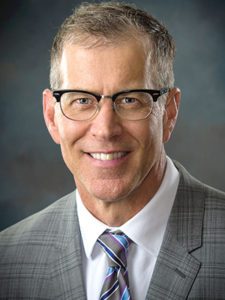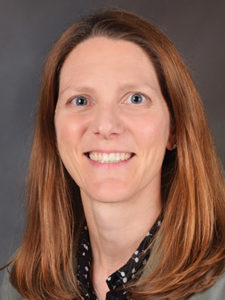
The increased demand for care means the rheumatology profession must seek solutions for addressing the existing and increasing workforce issues.
Some rheumatology clinics use advanced practice providers (APPs) to meet the increased demand. During an ACR / ARHP combined clinical practice session Sunday afternoon, attendees can learn about the benefits APPs can bring to a clinic and the practical steps to take to successfully incorporate a new provider. Practical Use of Advanced Practice Providers in Rheumatology will take place from 4:30 – 6:00 pm Sunday in Room W185a.
Charles King, MD, a board-certified rheumatologist at North Mississippi Medical Center, Tupelo, will present “Real-Life Examples of Adding APP to Your Practice.” Dr. King said he hopes attendees come away with a sense of what’s involved in adding an advanced practice provider to a clinic and why doing so can be beneficial for a practice.
“I practice in a critically underserved area in Mississippi and, really, the only way to keep up with the high volume of rheumatology referrals we receive is with the use of advanced practice providers,” Dr. King said. “In addition, with all the various requirements for Medicare’s Merit-based Incentive Payment System and other payment models, team-based care is critical to a successful practice. Advanced practice providers form an important part of our rheumatology team.”
Dr. King will address common issues physicians face when incorporating APPs, including resistance from patients.
“Initially, there was a lack of patient buy-in when I added my first APP,” he said. “My patients were upset and believed I was ‘handing them over’ to our APP. It was important that I help them understand the team concept and also to train the APP to practice the same way I do so patients understood that their quality of care would not be different. What we have noticed is that our APPs often spend more time with patients than I do, so now there has been broad acceptance.”
He said the onboarding process will vary from practice to practice, but he’ll give attendees a variety of ideas physicians can employ to be successful when adding an APP.

Heather Benham, DNP, RN, CPNP, a pediatric nurse practitioner at Texas Scottish Rite Hospital for Children, Dallas, will present “Challenges & Recommendations of Adding an APP.” Dr. Benham said the increased interest in APPs has been spurred by recent ACR studies regarding industry workforce issues.
“In the near future, we know we’re likely to face a shortage of rheumatology providers,” Dr. Benham said. “The number of patients requiring rheumatologic care is going to increase. The use of nurse practitioners and physician assistants in clinics is a way to address some of those workforce issues.”
With this in mind, Dr. Benham recently served on an ACR/ARHP task force that developed a curriculum for nurse practitioners and physician assistants who are interested in entering the world of rheumatology.
As part of her talk, Dr. Benham will share her experience as an NP in pediatric rheumatology and highlight some of the ways APPs can be utilized in a rheumatologic practice.
“This is a way for physicians who haven’t necessarily thought about incorporating a nurse practitioner or PA into their practice to see what the benefits might be,” she said. “We’ll demonstrate the needs that are arising in practices as this patient population grows. I’ll highlight the skills that nurse practitioners and PAs bring to the table and discuss the broad range of benefits they can provide. They can certainly participate in direct clinical care but also possess skills for addressing research issues, quality improvement, patient education, and more. They can really impact many aspects of health care delivery.”
During her talk, Dr. Benham will offer some practical strategies for physicians, including what to look for in a candidate for an APP position and what questions to ask candidates in an interview. She will also share advice from physicians and APPs about what makes their relationships work.
“I’ve talked to my colleagues about what has kept them working in pediatric rheumatology long term,” she said. “A common theme I saw in successful partnerships is the physicians really value what the APPs bring to the practice. They value their skills and their input. The long-term APPs not only feel valued; they have also been allowed to develop themselves professionally.”
Dr. Benham said the onboarding process does take time. However, if the physician is willing to make the investment upfront, it can benefit the practice for many years to come. She will also share examples of benefits she brings to her clinic, including the ability to perform musculoskeletal ultrasound.
“My collaborating physicians have allowed me the time to learn this skill, and they see this as a great benefit for our patients,” she said.
The session will also include a talk by Daniel Schaffer, PA-C, MS, a physician assistant in the Department of Rheumatology at the Mayo Clinic, Rochester, MN. Schaffer, who also served on the curriculum task force, will present data on some of the benefits of incorporating APPs into rheumatology practice. In particular, he’ll review a study that looked at how APPs have helped with instituting treat-to-target therapies for rheumatoid arthritis.
